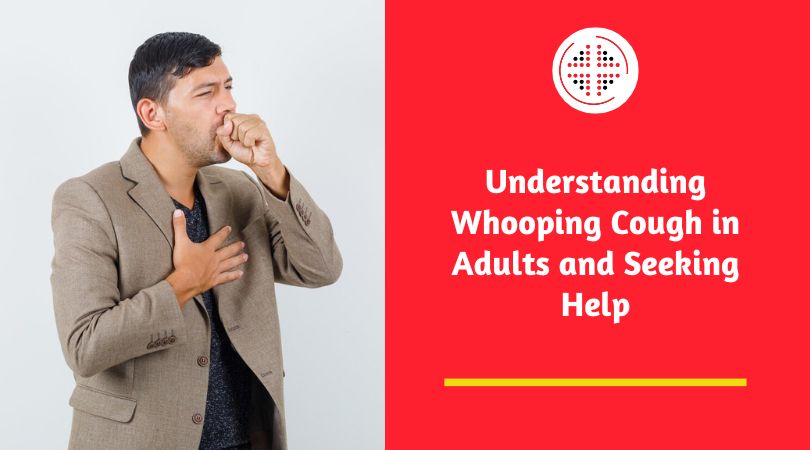


A whooping cough might seem like a disease of the past, but it's still a real risk for adults, especially those who haven't been vaccinated in recent years. Pertussis in adults can be easily overlooked, yet it can lead to serious health complications. From a persistent cough to intense coughing fits, recognizing the symptoms early and getting timely treatment is essential to prevent complications.
Join us as we break down everything you need to know about whooping cough in adults, from identifying the telltale symptoms to understanding how early intervention can make all the difference in your recovery.
Whooping cough, also known as pertussis, is a highly contagious bacterial infection caused by Bordetella pertussis that primarily impacts the respiratory system. It spreads easily through droplets expelled when an infected individual coughs or sneezes.
The disease tends to be less severe in adults than in children but can still result in serious complications, particularly for those with existing health concerns. Although adults typically experience milder symptoms, the illness can last for an extended period and may be quite draining. Infants and young children are especially vulnerable to whooping cough, making it critical for adults to be cautious, as they can unknowingly transmit the bacteria.
Pertussis in adults typically starts with cold-like symptoms, including:
As the infection progresses, coughing fits intensify, often accompanied by the signature "whoop" sound when taking a deep breath after coughing. Additional symptoms may include:
Early recognition is key to preventing the infection from worsening and spreading.
Several factors can increase an adult's risk of contracting pertussis, like:
Adults who have not received a pertussis vaccine or booster may be at higher risk for contracting the infection.
While whooping cough in adults is generally less severe than in children, it can still lead to significant complications, especially for those with pre-existing health problems. Common complications include:
For individuals with weakened immune systems or older adults, complications can be more serious and may necessitate prolonged medical attention. Early recognition and treatment of the infection are essential to reduce these risks.
Effective treatment for whooping cough in adults includes various options focused on alleviating symptoms and avoiding complications:
Additionally, preventing the spread of pertussis is essential. Adults should ensure they are current on their vaccinations, especially the DTaP/Tdap vaccine, which guards against symptoms of pertussis in adults. Vaccination is necessary for pregnant women, infant caregivers, and those with weakened immune systems. It's also advisable for family members to get vaccinated to help curb the transmission of the infection.
It's crucial to seek medical attention if you experience any of the following warning signs, which may indicate that the infection is worsening:
Prompt diagnosis and treatment can help reduce the severity of symptoms, avoid complications, and reduce the risk of spreading the infection to others. A healthcare provider can perform tests to confirm the presence of pertussis bacteria and prescribe the appropriate treatment.
Whooping cough doesn't have to keep you down. The sooner you act, the quicker you'll feel like yourself again. With prompt treatment and preventative steps, you can outsmart this illness, protect those around you, and breathe easier.
Tired of endless coughing fits? At MI Express Urgent Care, we help you breathe easier and recover faster. Our expert team offers personalized care to get you back to your best self.
Book your consultation today and step into care that puts your health first and restores your peace of mind!